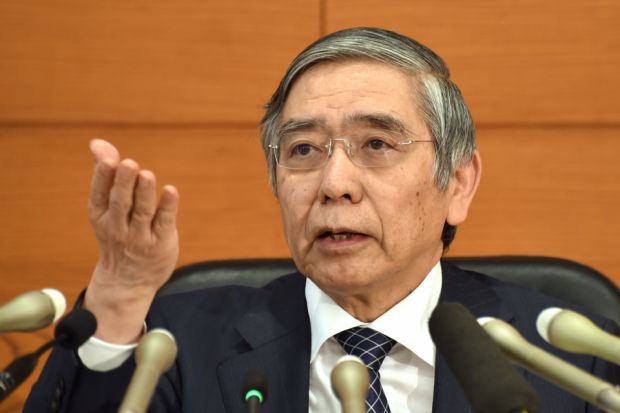
“Fintech” poses challenges for banking-sector stability: BOJ’s Kuroda
By The Business Times
[TOKYO] New financial technology, or “fintech”, poses fresh challenges for central banks in maintaining banking-sector stability, Bank of Japan Governor Haruhiko Kuroda said on Monday.
Financial authorities regulate the banking sector by imposing constraints on the balance sheets of commercial banks, including setting capital requirements and liquidity standards.
But Mr Kuroda told a seminar that such regulatory tools may not be very effective for regulating fintech firms that specialise in settlement services, or match supply of and demand for funds without using their own assets.
“Thus, financial authorities are facing new challenges in terms of obtaining information and maintaining financial stability,” he said.
New information technologies also made financial networks more open and cyber-attacks more sophisticated, increasing the need for authorities to boost security measures, he said.
Given incidents that suggest new types of financial transactions such as high-frequency and algorithm trading tended to increase market volatility, policymakers needed to develop a deeper understanding of their impact on financial markets, Mr Kuroda said.
European Central Bank policymaker Francois Villeroy de Galhau, who was present at the same seminar, also warned of “sensitivities” in dealing with the evolution of fintech.
“We don’t have to sacrifice consumer confidence and security because if they go down… it would hamper the long-term development of fintech,” he said.
Policymakers should regulate fintech and financial actors, not based on who they are but what they do, Mr Villeroy added.
Fintech, which involves new technologies to make financial services more efficient, has been under the global spotlight because of its promise – or threat – to “disrupt” traditional financial activity.
It gained prominence in the United States partly on public distrust over traditional banking after the collapse of Lehman Brothers in 2008 led to the mass bailing-out of “too big to fail” banks by the US government.
First appeared at BT





